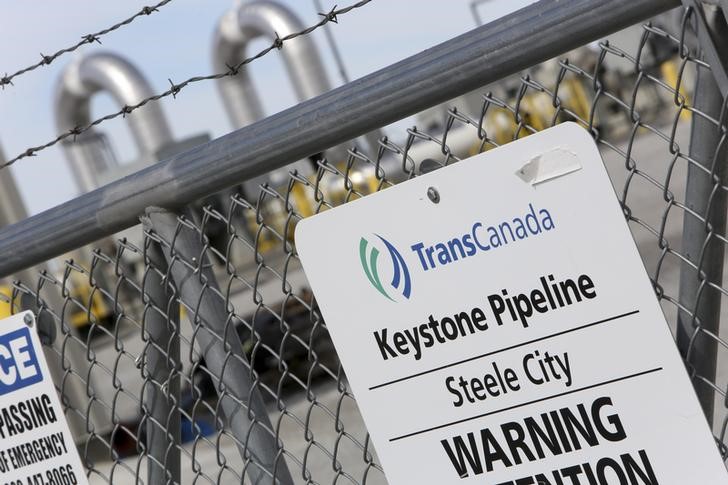(Corrects university in eight paragraph to University of Calgary, not University of Alberta)
By David Ljunggren and Nia Williams
Sept 13 (Reuters) - Canada's Liberal government on Tuesday expressed confidence it could appoint new panel members to assess TransCanada Corp's TRP.TO Energy East pipeline, even though industry observers say it might be hard to find qualified candidates.
A three-person National Energy Board panel charged with assessing the project in the largely French-speaking province of Quebec quit last Friday after it emerged two members had privately met a TransCanada consultant before the hearings formally started. unexpected move means the federal government now has to appoint a new panel for the board - which serves as the country's energy regulator - before the Quebec hearings can resume.
"We'll find them," Natural Resources Minister Jim Carr told reporters. "That's our responsibility, and we'll take it seriously and we'll do it as quickly as we can."
One source familiar with the file said Ottawa could have problems, citing a severe shortage of fluent French-speakers who knew enough about energy to be able to deliver a comprehensive and well-informed assessment on the pipeline.
Pressed about a lack of bilingual experts, Carr replied: "I'm not concerned about that."
NAB spokeswoman Sarah Kiley said by law, panel members must be able to hear evidence in English and French without an interpreter and be free of an apprehension of bias.
Kent Fellows, a research associate at the University of Calgary's School of Public Policy, said it could be difficult to identify candidates with necessary expertise who have not been recently employed by the oil industry.
"It's a fine line to find people who are familiar with the relevant issues but have not touched anything specific to do with Energy East," he said.
The Liberal government has already promised to reform the NEB, which some critics complain is too close to the energy industry.
Before the panel resigned last week, the NEB had been due to produce a final report by March 16, 2018.
Carr said the hearings schedule "could be changed modestly", depending on whether or not the NEB decided to restart the process. Hearings had already taken place in New Brunswick, but were disrupted in Quebec by protesters. setback came after the United States blocked TransCanada's Keystone XL pipeline last year.
Energy East, designed to carry 1.1 million barrels per day from Alberta's oil sands to the Atlantic coast, does not cross international borders and was originally seen as a less contentious project, but has also run into fierce opposition from environmental groups.
